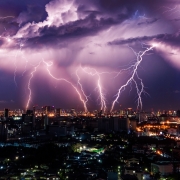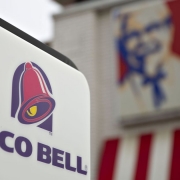Pittsburgh Mayor Bill Peduto has faced a fierce backlash since he announced at last week’s Climate Action Summit that he opposes any new petrochemical companies coming to Western Pennsylvania. Labor unions, civic leaders and even the mayor’s closest political ally have taken him to task.
“When you make a comment that can clearly hurt the advancement of a region and their ability to feed their family and have a better life, that’s when it becomes an issue for us,” said Darrin Kelly, the city firefighter who heads the Allegheny County Labor Council. “I’m going to be very vocal on behalf of the working men and women to protect them, OK? . . . If they’re attacking our way of life, I’m going to come after them.”
The battle is a microcosm of what is happening nationally: Big-city Democratic mayors are aligning themselves with leftist local officials and environmental activists to renounce disfavored industries. It also exposes the Democrats’ deep challenges with blue-collar voters. In both Western Pennsylvania and the Scranton area, the shale industry is opening up prosperity not seen for two generations—and inflaming climate zealots. “A Democrat cannot win Pennsylvania without voter support from those two regions,” said Mike Mikus, a strategist who consulted for Democratic Gov. Tom Wolf’s re-election campaign last year. “And you can’t win the presidency as a Democrat if you lose Pennsylvania.”
The oddity of the latest dustup is that there are no petrochemical plants in Pittsburgh. The build-out in the area is in Beaver County, to the northwest, where the massive $6 billion Shell Pennsylvania Petrochemicals Complex is under construction and where Exxon may build another nearby. Building the Shell plant is expected to create 6,000 jobs in construction, engineering, chemistry, information technology and geology. Once it opens, industry analysts expect it to employ 600 people permanently and to support twice that number of jobs elsewhere in the local economy. The governor calls it a “game changer” for the region.
Allegheny County Executive Rich Fitzgerald, Mr. Peduto’s closest ally, is flabbergasted by the mayor’s opposition. He bristles at the suggestion that one can’t favor fracking and mitigating climate change. “I believe in climate change,” he says. “I think it is absolutely real. Anybody who denies that I think is not looking at the science. What natural gas has done has been one of those great additions to lower our carbon footprint.” Natural gas emits 30% less carbon than oil and 45% less than coal.
“No city in America has benefited more from the shale revolution in the last dozen years than Pittsburgh,” Mr. Fitzgerald continues. “We were one of the only regions in the country that did not experience the Great Recession back in 2008, because that’s when we discovered the Marcellus Shale.” He says of Mr. Peduto: “I also think it gets very tricky when somebody who represents one-eighth of the metro region to try to speak for the 2½ million people that represent the 10-county metro region.”
Pittsburgh International Airport last month announced a first-in-the-country microgrid that will power the entire airport using natural gas, drilled on-site by CNX Resources, as well as solar generation. Nick Deluliis, CEO of CNX, says the mayor’s approach to energy would make such a project impossible: “I think people need to understand what the mayor is saying represents a very small minority of people in this region and oftentimes he is operating in a bit of an echo chamber. So his views I don’t think are the working man’s view. It’s not the building trades’ view, it’s not manufacturing’s view, and it’s really not a rational fact-based view.”
Pittsburgh mayors have usually been Democratic pragmatists, concerned above all with making sure the streets are safe, the snow gets plowed and garbage picked up, and civic leaders are able to develop the city. Last week a sinkhole in a city street swallowed a bus as it idled at a red light. A passenger was treated for minor injuries, but the mayor’s reputation was also bruised. The moment became a local metaphor for Mr. Peduto’s emphasis on ideology at the expense of the unpretentious problems of governing.
“I was elected to represent the citizens of Pittsburgh, not Paris,” President Trump said in 2017, when he announced the U.S. withdrawal from the Paris climate accord. Mr. Peduto balked at the comparison, yet many locals see him acting as if he were the mayor of Paris and not Pittsburgh.
Mr. Kelly said that since he took on the mayor, he’s been overwhelmed by calls of support from labor. “We are not backing down.”
Ms. Zito is a reporter for the Washington Examiner, a columnist for the New York Post and a co-author of “The Great Revolt: Inside the Populist Coalition Reshaping American Politics.”













